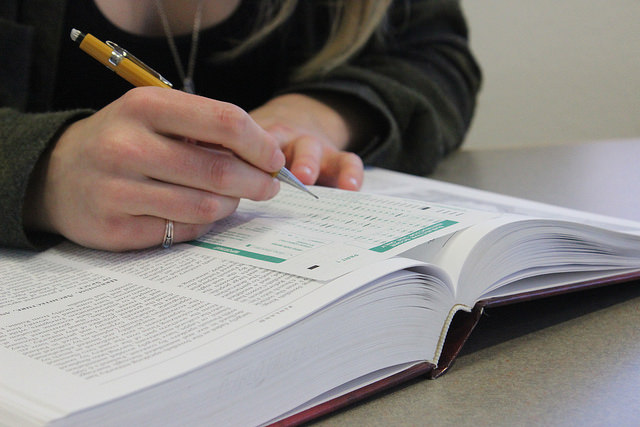Finland’s students are more equipped for the real world than U.S.
October 12, 2016
Finland’s superior education system has always been an enigma to me — what are they doing right, and why is it putting the U.S.’s system to shame?
The PSAT, SAT, ACT, STAR, and a number of others, are all standardized tests students in California have been habituated to, however, I don’t believe these tests are helping students in any way.
They simply measure students like data points to ensure they will fit into a cookie-cutter, assembly line position. In Finland, however, all but one standardized test has been eradicated. I believe it is one of the most beneficial steps a country can take towards improving their education.
Finland is doing it right: standardized testing creates a hurricane of unnecessary stress for high school students.
Pasi Sahlberg, a Finnish education expert and director of the Ministry of Education believes that our biggest problem is the role standardized testing plays in our education system. He said, “No high-performing nation in the world has been successful using the policies that the United States is using.”
Their decision to eradicate standardized testing has paid off, according to an article in Stanford News on the Finnish school system. In 2009 Finland scored “sixth in math, second in science and third in reading” on the Program for International Student Assessment (PISA). Compared to U.S. students who scored, “30th, 23rd and 17th (respectively)”, there seems to be large differential success between us and Finland.
Finland’s success story is also due in part to their very personal teaching techniques which moves in the opposite direction of standardized testing.
According to Sahlberg, “students are regularly asked to show their ability to cope with issues related to evolution, losing a job, dieting, political issues, violence, war, ethics in sports, junk food, sex, drugs, and popular music.”
Finland’s educators teach students to be successful critical thinkers and well-rounded adults ready to enter post-graduation life, without the use of standardized tests. Students are learning how to learn, and how to be not the best, but the best version of themselves.
I firmly believe that when students are taught and engaged in curriculum that they are interested in, they are not only more likely to retain the information, but are simultaneously figuring out what they want to do with their lives and growing as a person.
There are no standardized tests in the world outside of schooling.
Being a unique thinker from day one becomes a vital quality which can enrich future generations of life. The only standardized test in Finland is the national Matriculation Examination.
Their one exam is essentially all of the U.S.’s standardized tests combined into an open-ended, multidisciplinary examination students are required to pass in order to graduate.
Having a single standardized test at the end of a high school career seems much more fitting. I believe that Finland has reformulated the purpose of exams, to fit more to the individual student and less to the state’s standard.
Although the Matriculation Exam is high stakes, the questions are much more personal and require a type of holistic intelligence rarely found in the U.S.
Some example questions from this test, according to the Washington Post’s article on the national Matriculation Examination are:
“In what sense are happiness, good life and well-being ethical concepts?”
“Some politicians, athletes and other celebrities have publicly regretted and apologized for what they have said or done. Discuss the meaning of the apology and accepting it as a social and personal act.”
“Media is competing for audiences — what are the consequences?”
From my schooling in the United States, I would have an extremely hard time answering these questions. I truly wish I knew how to answer these, and had my high school focused more on preparing me for life after graduation, I might have been able to.









































































Durgesh Mangeshkar • Oct 12, 2016 at 11:19 pm
Yes – the Finnish system of education is personalised and excellent. But one must note that Finland is a rich nation and has invested heavily in education sector. Teachers are one of the best paid professionals in Finland and the teacher-student ratio is very healthy in Finnish schools and colleges. Finland invests excellent human and financial resources on teacher training too.
However, how can the Finnish model be implemented or adapted to suit a vast, poor, diverse nation like India wherein over 1 lakh schools have only one teacher each, teachers are under-paid and unmotivated, students don’t have any social security (hence are more job-oriented and less knowledge-oriented), teacher-recruitment is a corrupt process and regressive policies like caste-based reservations are prevalent ?
I guess every society and nation needs to evolve its own version of the Finnish system.